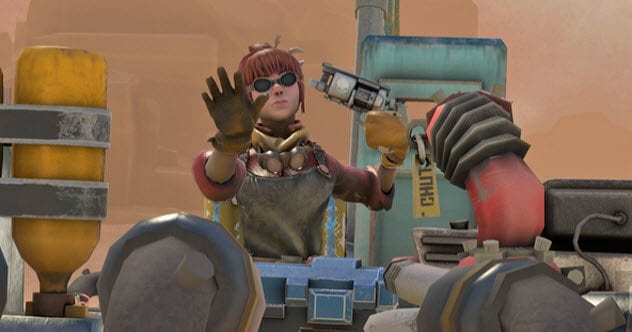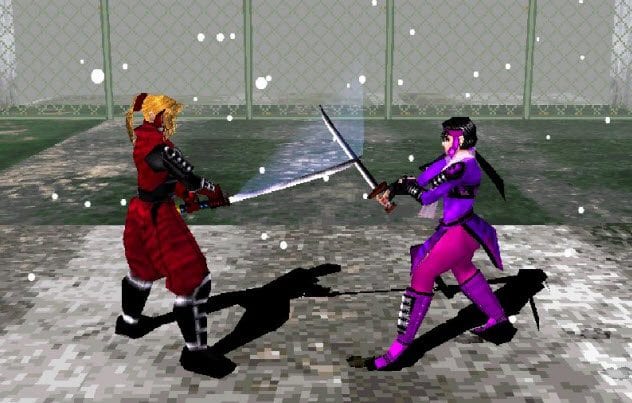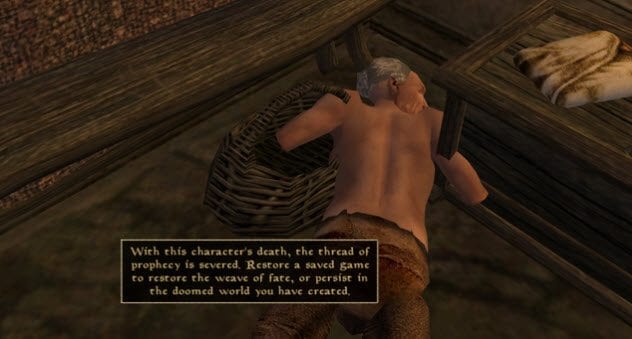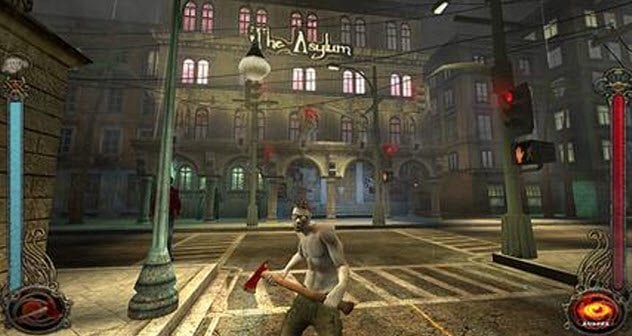 History
History  History
History  Health
Health 10 Everyday Activities That Secretly Alter Consciousness
 History
History Top 10 Historical Disasters Caused by Someone Calling in Sick
 Animals
Animals 10 New Shark Secrets That Recently Dropped
 Movies and TV
Movies and TV 10 Forgotten Realities of Early Live Television Broadcasts
 Technology
Technology 10 Stopgap Technologies That Became Industry Standards
 Weird Stuff
Weird Stuff 10 Wild Facts About Taxidermy That You Probably Didn’t Know
 Travel
Travel 10 Beautiful Travel Destinations (That Will Kill You)
 Miscellaneous
Miscellaneous 10 Modern Marriage Rituals Born from Corporate Branding
 Weird Stuff
Weird Stuff Ten Bizarre Visions of 2026 from Fiction
 History
History 10 “Modern” Problems with Surprising Historical Analogs
 Health
Health 10 Everyday Activities That Secretly Alter Consciousness
 History
History Top 10 Historical Disasters Caused by Someone Calling in Sick
Who's Behind Listverse?

Jamie Frater
Head Editor
Jamie founded Listverse due to an insatiable desire to share fascinating, obscure, and bizarre facts. He has been a guest speaker on numerous national radio and television stations and is a five time published author.
More About Us Animals
Animals 10 New Shark Secrets That Recently Dropped
 Movies and TV
Movies and TV 10 Forgotten Realities of Early Live Television Broadcasts
 Technology
Technology 10 Stopgap Technologies That Became Industry Standards
 Weird Stuff
Weird Stuff 10 Wild Facts About Taxidermy That You Probably Didn’t Know
 Travel
Travel 10 Beautiful Travel Destinations (That Will Kill You)
 Miscellaneous
Miscellaneous 10 Modern Marriage Rituals Born from Corporate Branding
 Weird Stuff
Weird Stuff Ten Bizarre Visions of 2026 from Fiction
Top 10 Most Outlandish Video Game Mechanics
Games used to be so simple. Get the high score. Eat all the pellets. Just run to the right until the level ended. Simple. Those days are long gone, replaced instead with game mechanics that go beyond anything you would likely imagine.
Don’t believe it? Well, would you have ever thought there would be a game that tasked you with pressing a button for four whole hours to save a cardboard cutout of a baby? If you did somehow think of that, you’re probably as crazy as some of the things in this list.
10 Zelda
Its Hardest Puzzle Is Also Its Easiest
The puzzles in Nintendo’s Zelda series have always ranged from either so easy that you solve them without even realizing it to so mind-numbingly hard that you go online not to find the solution but to cry into the endless void of unfairness.
With the Phantom Hourglass on the Nintendo DS, they somehow found a way to make a puzzle that fell into both categories at the same time. The puzzle was clear enough. Get the sacred crest from the top screen and imprint it onto the map on the bottom screen.
The catch was that none of the buttons on the handheld did anything and you couldn’t move the maps from one screen to another. As players got frustrated and quit, they closed their DSs so that they could solve the puzzle later. But when they came back to the game, the puzzle was already solved. To get the crest from the top screen onto the map on the bottom screen, you just had to close the DS and push the screens together.
Logically, closing the DS should have turned the game off. But the sneaky developers over at Nintendo included a mechanic in Phantom Hourglass that allowed the game to keep track of whether the console was opened or closed, even though closing the system’s lid would make the game stop playing.
9 Virtual Reality
Curiosity Killed The Cat—And You

With the recent release of next generation virtual reality headsets like the Oculus Rift, HTC Vive, and PSVR, people have gained the ability to see and experience things they never thought possible.
Users can put themselves into scenarios scarier than any haunted house, blast off into space to fight their friends in stomach-turning spaceships, or even jump into their 30-meter-tall (100 ft) robots to play city-destroying golf, among countless other games and programs.
Or, as an overwhelming number of people have done, pick up the first gun they see and shoot themselves right in the face for no reason other than to see if they can. Surprisingly, in almost every virtual reality game involving a gun, you can.
Developers are setting aside time and resources to let people kill themselves in games where there is no need to do it, just because the developers know that people are going to try.
8 The Stanley Parable
Refusing To Play The Game
The main goal of the game The Stanley Parable is to walk through an office building and follow the directions of an unseen narrator. While that probably sounds simple and boring, the game’s mechanics were actually designed entirely around the idea that most players would likely try their hardest not to follow said directions and the game would adapt to the player’s disobedience.
If you wanted, you could even refuse to leave the starting area and the game would react accordingly. One such reaction could be the narrator taking the player out of the game entirely and dropping the player into a new one.
The rules set out are simple. Press a button to stop the baby from falling into fire. The goal? Keep the baby out of the fire for four real-life hours.
This isn’t a gag. At the two-hour mark, the narrator returns to add a second button that forces you to run across the room every few seconds to stop a puppy from falling into some acid.
If you can somehow keep it up for four nonstop hours and keep both the baby and the puppy alive, you achieve artistic enlightenment and the game ends. If you fail, the narrator takes you to play a Minecraft clone.
7 NieR: Automata
Crashing The Game Is A Feature
Released in 2017, NieR: Automata has more ridiculous game mechanics, secrets, and crazy twists than you can shake a stick at. The game throws logic out the window and turns the player on their head every chance it gets. Absolutely nothing is safe. Not even the game’s settings menu.
As with most games, special weapons and abilities cost points. In the beginning of NieR: Automata, those points aren’t exactly falling from the sky. To get more points easily, the game allows you to go into the settings and disable things like the map or your own health bar to squeeze out a few extra points to spend on weapons.
Oddly, one of the things that you can remove in the settings is the main character’s operating system. The game clearly warns the player that if you remove this, the game will not be able to continue.
Ignoring the warning and removing the operating system will cause a fatal error to appear before the game kicks the player back to the starting menu. Congratulations! You’ve just crashed the game and earned a secret ending.
6 Bushido Blade
Fight With Honor Or Die

The cult classic Bushido Blade on the original PlayStation was sword fighting at its finest. With realistic combat, entire fights could be decided by one clean swing of your sword or at least be heavily stacked in your favor if you managed to disable one of your opponent’s limbs.
If you were losing a fight due to an injury, you could even the odds by kicking sand in your opponent’s face or by kneeling down to surrender, only to slyly attack your opponent if they showed mercy to you. You could even attack enemies during cutscenes and kill the enemies without having to fight at all.
While tricks like that would work to get you out of a pinch, Bushido Blade took the idea of Bushido very seriously and using such tactics would make the game consider you dishonorable. If you dishonored your clan enough, the game would either end outright or your character would kneel down and kill themselves, forcing you to start over. Hopefully, you might take a more honorable path next time.
5 The Elder Scrolls III: Morrowind
Anyone Can Be Killed

Usually in a story-heavy game, any character important to the story is given something called a trigger. It points them out as a special character so players don’t accidentally kill them and ruin the game.
A famous example of one of these triggers being broken was when the creator of Ultima Online joined a server as an unstoppable god character, only for players to find a way to kill him anyway. That one event was an unexpected oddity that wasn’t meant to happen.
In The Elder Scrolls III: Morrowind, there are no such triggers. Did you get caught stealing and end up murdering the owner of the house only to find that the homeowner was actually an important character who was going to help you beat the game? Well, too bad.
The game announces that you just severed the thread of prophecy and doomed the world. You can either continue in this cursed life or reload a previous save. Hopefully, it hasn’t been too long since you last saved.
4 Metal Gear Solid 3: Snake Eater
Let Your Enemies Die Of Old Age
The Metal Gear Solid series is well-known in the gaming world for being filled to the brim with secrets and silliness. From a secret vampire–themed game that can only be found by turning the console off during a certain part of the game to being able to get the main character yelled at by his girlfriend, there is no shortage of secrets to find.
One of the craziest secrets, however, can completely change the course of the third game in the series. And all you need to do to find it is wait.
Unknown to players, Metal Gear Solid 3: Snake Eater on the PlayStation 2 actually kept track of the time that passed when you weren’t playing the game. If you were to take a week-long break between gaming sessions, an elderly character known as The End would actually die from old age while waiting for you to come back and fight him.
Upon restarting the game, your character would lament the fact that you took so long that he didn’t get to have his epic fight against the world’s greatest sniper. Then that entire section of the game would simply be skipped.
3 Undertale
Characters Remember Your Choices Even When You Delete Your Save
Released in late 2015, Undertale was one of the most surprising titles to hit the PC in recent memory with a battle system unlike any other. Every fight in the game could be ended peacefully. Also, the world and the story of the game would adjust to your actions depending on whom you killed (or didn’t) and when. Making the game even more special is just how it handled saves.
While you could solve your problems without resorting to violence, the game didn’t exactly spell it out for you in the beginning. This led most players to kill a few key characters before leaving the first area.
Once they realized their mistake, players would often delete their save and start over. However, the game and its characters would remember your actions from the deleted save. This would manifest itself in new dialogue or character interactions, with some monsters even taking you aside and making fun of you for thinking you could just start over without consequences.
2 Vampire: The Masquerade–Bloodlines
Playing As A Malkavian

Vampire: The Masquerade–Bloodlines is about, you guessed it, vampires. Placed in the role of a recently turned night stalker, you are given the option to choose from seven different types of vampires, each with its own strengths and weaknesses. While most of your choices are run-of-the-mill, there are two races that stand out: the Nosferatu, which cannot go out in public due to their appearance, and the Malkavians.
The Malkavians are a race of vampires that suffer from the gift of insight, which more or less means they’re insane. Playing as one completely changes the game as you are only able to talk in nonsensical riddles that reveal secrets of the story while confusing both players and non-player characters.
All the while, disembodied voices whisper the true intent of characters in your ear as you play. It can all be overwhelming to a new player, and that isn’t even bringing up the fact that TVs and road signs become characters you can talk to and argue with.
1 Fallout Series
Intelligence Really Matters
When you play a role-playing game, you have to set up your stats—things like strength, stamina, charisma, luck, intelligence, etc. Each stat corresponds to something obvious. If you have low strength, you can’t hit as hard. If your charisma is low, then you will have a tougher time bargaining with people or getting them to like you.
If you have low intelligence, then . . . you make weaker health kits and spells? Most games don’t really punish you for having low intelligence. The Fallout series is not like most games, however.
While not as in-depth in the later games, playing a character with low intelligence in the first two Fallout games literally handicaps you. Almost the entire game is locked to you as you are just too dumb to comprehend what is happening around you.
Your character can only respond in either simple sentences or just plain gibberish, and most enemies take pity upon you instead of trying to fight. Playing a low-intelligence character is not recommended for first-time players as it is possible that you may not be able to finish the game if you get unlucky with your intelligence checks.
Kyle has nothing to blurb here, so thanks for reading for now!








